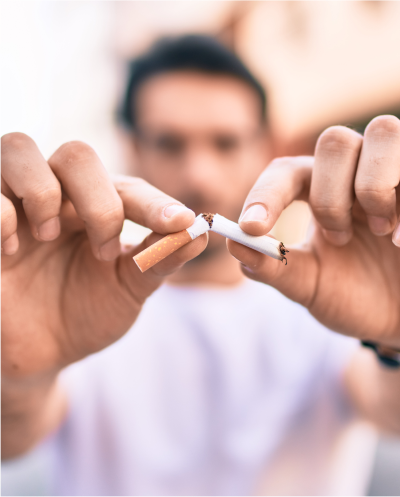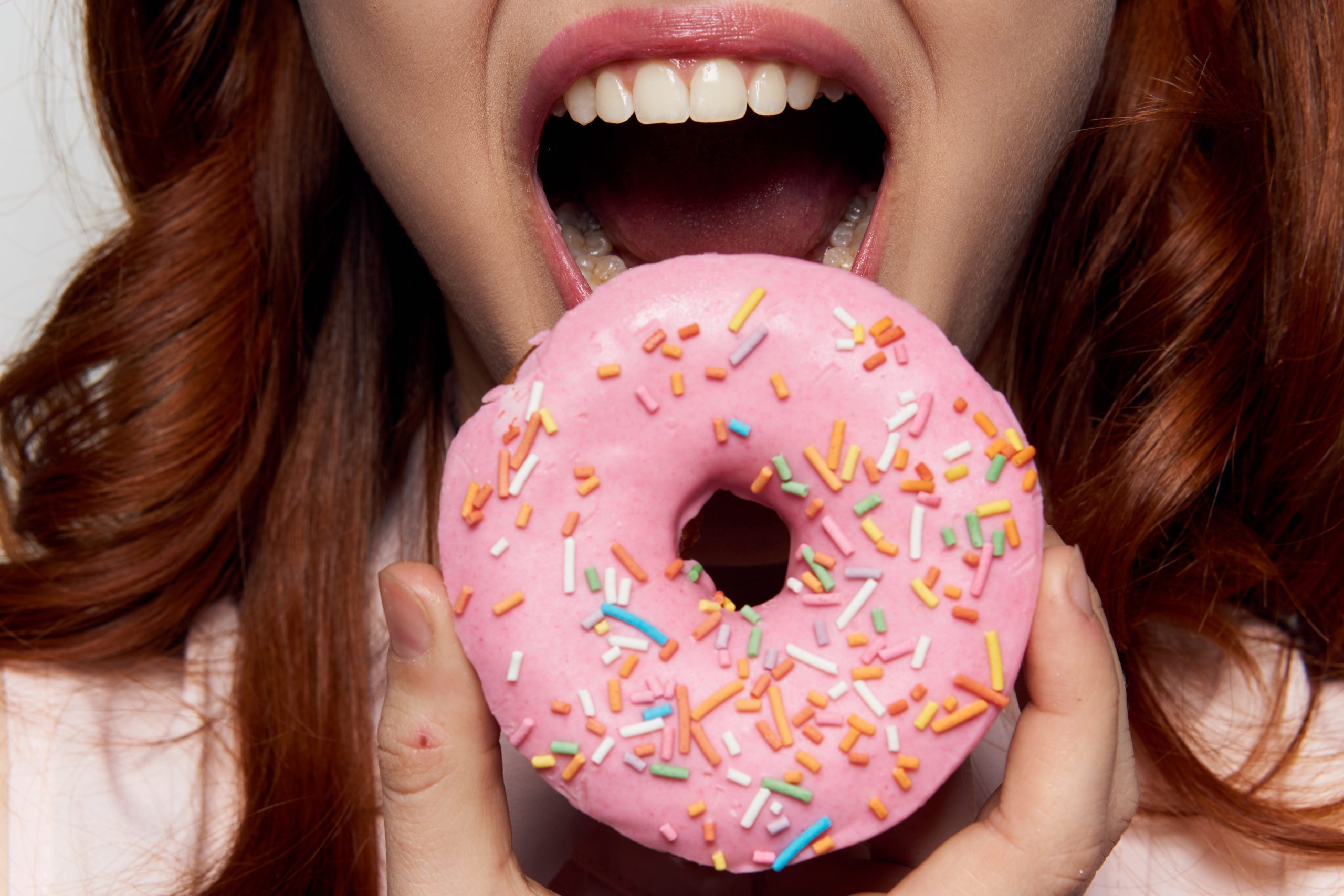What is NO-sweet®
NO-sweet® is an innovative concept to support the elimination of sweets from your diet and weight reduction based on the unique mechanism of action of a proven, well-known plant substance. We have developed an innovative proprietary way how to support psychological and physical independence from sugar! Our innovative solution helps effectively and safely win over the reward center by teaching it that sweets do not give a sense of fulfillment and happiness. We support breaking this thread of sugar addiction by changing the brain's perception and reward center to sugar-containing products.

For Whom.

You are an overweight or obese person: Obesity is a chronic disease with the international ICD 10 code E66 as defined by the WHO and major health organizations and associations. In Poland, more than 7 million citizens suffer from obesity! The most commonly used parameter to estimate whether our body weight is correct is the body mass index (BMI)-a ratio formed by dividing our body weight, given in kilograms, by the square of our height, given in meters. Measure your BMI by clicking here:

You have been diagnosed with diabetes and/or insulin resistance, which can cause fluctuations in blood sugar levels that increase cravings for sugary products.

Pre-menstrual women reaching for sweets: We know that many of you experience strong cravings for sweet snacks before your menstrual period. This is the result of a decrease in estrogen levels relative to progesterone, which affects the production of serotonin, responsible for, among other things. For your well-being.

People after a satiating lunch, looking for energy: Do you often reach for sweets after dinner, convincing yourself that it will give you energy?
That’s understandable, but it’s worth exploring healthier sources of energy that won’t introduce blood sugar fluctuations.

People with symptoms of depression: If depression has you reaching for unhealthy foods and sweets in search of a temporary sense of happiness and peace, consider alternative methods of dealing with your emotions.

Stress eaters: compulsive eating, triggered by stressful situations, is not related to hunger, but is an addiction , a need for a sense of temporary comfort. This is the effect of high levels of cortisol, known as the “stress hormone,” which can increase the desire to eat sugary products. It is important to understand this.

You quit smoking and quickly gain weight: By eating sweets in a simple mechanism, you change a habit stimulated by a reward mechanism.

You are a person addicted to sweets: Sweets act on our senses like the strongest drug. We know how difficult it is to say to ourselves “stop the sweets” with compulsive eating, when our hand involuntarily reaches for another piece of chocolate or cookie and our reward center in the brain gives an illusionary sense of satisfaction destroying our body. Sugar is addictive to our body and destroys our health.

You are an overweight or obese person: Obesity is a chronic disease with the international ICD 10 code E66 as defined by the WHO and major health organizations and associations. In Poland, more than 7 million citizens suffer from obesity! The most commonly used parameter to estimate whether our body weight is correct is the body mass index (BMI)-a ratio formed by dividing our body weight, given in kilograms, by the square of our height, given in meters. Measure your BMI by clicking here:

You have been diagnosed with diabetes and/or insulin resistance, which can cause fluctuations in blood sugar levels that increase cravings for sugary products.

Pre-menstrual women reaching for sweets: We know that many of you experience strong cravings for sweet snacks before your menstrual period. This is the result of a decrease in estrogen levels relative to progesterone, which affects the production of serotonin, responsible for, among other things. For your well-being.

People after a satiating lunch, looking for energy: Do you often reach for sweets after dinner, convincing yourself that it will give you energy?
That’s understandable, but it’s worth exploring healthier sources of energy that won’t introduce blood sugar fluctuations.

People with symptoms of depression: If depression has you reaching for unhealthy foods and sweets in search of a temporary sense of happiness and peace, consider alternative methods of dealing with your emotions.

Stress eaters: compulsive eating, triggered by stressful situations, is not related to hunger, but is an addiction , a need for a sense of temporary comfort. This is the effect of high levels of cortisol, known as the “stress hormone,” which can increase the desire to eat sugary products. It is important to understand this.

You quit smoking and quickly gain weight: By eating sweets in a simple mechanism, you change a habit stimulated by a reward mechanism.

You are a person addicted to sweets: Sweets act on our senses like the strongest drug. We know how difficult it is to say to ourselves “stop the sweets” with compulsive eating, when our hand involuntarily reaches for another piece of chocolate or cookie and our reward center in the brain gives an illusionary sense of satisfaction destroying our body. Sugar is addictive to our body and destroys our health.





















